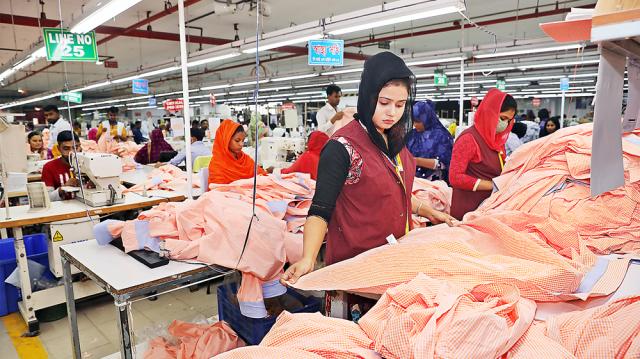
Despite global trade challenges such as the imposition of an additional 35 percent tariff in the United States, Bangladesh's ready-made garment sector is showing signs of recovery in non-traditional markets. Exports to these markets increased by 5.61 percent in the fiscal year 2024-25, earning $6.44 billion—16.36 percent of the country's total RMG exports.
The main drivers of this growth were Japan, Australia, and India. In particular, exports to Turkey increased by 25.62 percent, India by 17.39 percent, and Japan by 9.13 percent. However, exports to Russia, the United Arab Emirates, Korea, and Malaysia declined. Exports to Russia fell by 10.28 percent, the UAE by 10.96 percent, and Malaysia by 11.21 percent.
Meanwhile, traditional markets remain Bangladesh's main export destinations. Exports to the European Union amounted to $19.71 billion, accounting for 50.10 percent of total exports. The United States accounted for $7.54 billion (19.18 percent) and the United Kingdom and Canada by $4.35 and $1.30 billion, respectively. Within the EU, Germany, Spain, France, the Netherlands, Poland, Italy and Denmark are the main export destinations. The Netherlands grew by 21.21%, Sweden by 16.41%, and Germany by 9.47%.
Experts say that not only low prices but also quality, sustainable production and new designs will be the main competitiveness of the future. Ready-made garment sector traders say that market diversification and innovation are the need of the hour. They have suggested strengthening bilateral trade agreements (FTAs or PTAs) in addition to entering new markets.
According to ITC data, the size of the global apparel market in 2024 was about $500 billion, of which the non-traditional market accounted for $150 billion. Bangladesh has only a 6% share in this market, so the potential is still great.
Mohiuddin Rubel, Managing Director of Bangladesh Apparel Exchange, said, “Entering new markets and innovating is not a strategy, but a necessity for survival.” BKMEA Executive President Fazle Shamim Ehsan said, "We need to increase product diversity and quality improvement. Along with this, Bangladeshi garments must be presented as a 'symbol of quality and fair price' in new markets."